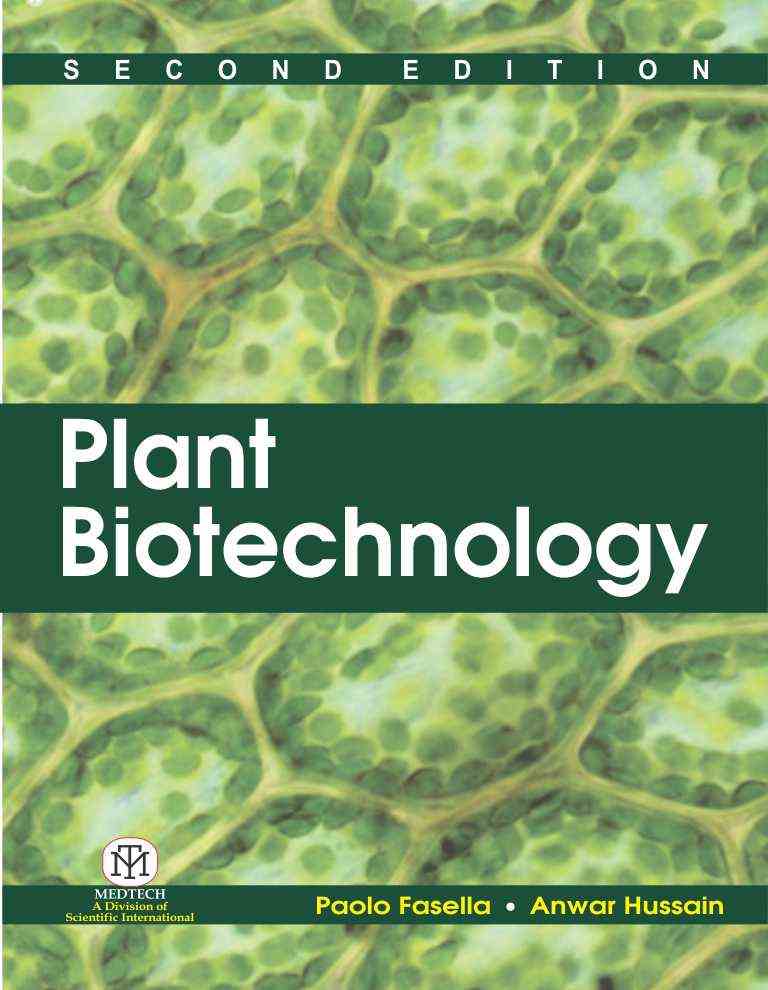Scientific International is a leading publisher of high-quality academic and scientific books across various fields. Our publications are authored by esteemed experts from India and globally, known for their academic excellence and pedagogical approaches. We publish under the MedTech imprint, a rapidly growing platform covering numerous disciplines. Our mission is to provide cutting-edge, accessible content that inspires curiosity and fosters learning, contributing to the global academic community and supporting students, professionals, and researchers worldwide.
Associated partner

PLANT BIOTECHNOLOGY 2/ED
Rs. 1495
| Attribute | Details |
|---|---|
| ISBN | 9789385998454 |
| Author | ANWAR HUSSAIN, PAOLO FASELLA |
| Subject | Agricultural Science |
| Binding | Paperback |
| Total Pages | |
| Copyright Year | 2017 |
Note : Price subject should be change on the website.
Plant Biotechnology is a precise process in which scientific techniques are used to develop molecular and cellular-based technologies to improve plant productivity, quality and health, quality of plant products or to prevent, reduce or eliminate constraints to plant productivity caused bygdiseases, pest organisms and environmental stresses. Plant biotechnology in use today relies on advanced technology, allows plant breeders to make precise genetic changes to impart beneficial traits to plant. The practice of plant biotechnology has been around for centuries. Using less advanced methods, early farmers and plant breeders laboured to improve plants. The field of plant biotechnology is concerned with developing ways to improve the production of plants in order to supply the world's needs for food, fibre and fuel. Plants provide us many pharmaceuticals ahindustrial compounds. To increase the quantity of crop production as well as to produce specific characteristics in plants, biotechnologists are using selective gene techniques. Plant biotechnology is an extension of this traditional plant breeding with one very important difference - plant biotechnology allows for the transfer of a greater variety of genetic information in a more precise and controlled manner. This more precise science allows plant breeders to develop crops with specific beneficial traits and without undesirable traits. Many of these beneficial traits in new plant varieties fight plant pests-insects, disease and weeds--that can be devastating to crops. Others provide quality improvements, such as tastier fruits and vegetables, processing advantages, such as tomatoes with higher solids content, and nutrition enhancements, such as oil seeds that produce oils with lower saturated fat content. Crop improvements like these can help provide an abundant, healthful food supply and protect our environment for future generations. This second edition of the textbook is prepared including Multiple Choice Questions at the end of the book for the benefit of the students. This book is divided into 28 chapters Abbreviations, diagrams, figures, tables, glossary and index supplement the text. All the topics have been covered in a simple and lucid style to help the reader grasp the information quickly and easily. This book is an essential reading for all students and teachers of life sciences, biotechnology, microbiology, bioinformatics as well as researchers in these allied fields. The book will also be useful to students pursuing B. Tech. in agricultural engineering. It caters to the requirement of the syllabus prescribed by various universities for undergraduate students pursuing engineering courses.





 Continue With Google
Continue With Google
 Continue With Facebook
Continue With Facebook
